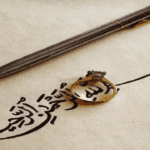In the quiet moments that follow the culmination of a prayer, Muslims often turn their hearts and minds towards a profound tradition – the recitation of “Namaz ke Baad ki Dua.” This simple act holds immense significance, serving as a bridge between the worshipper and the divine. In this article, we delve into the enriching practice of post-prayer supplications, exploring its importance, historical roots, and the transformative power it holds in one’s spiritual journey.
اَللّہُمَّ اَنْتَ السَّلَامُ وَمِنْکَ السَّلَامُ تَبَارَکْتَ یَاذَاالْجَلَالِ وَالْاِکْرَامِ ۔
I seek the forgiveness of Allah (three times) . O Allah, You are Peace and from You comes peace . Blessed are You , O Owner of majesty and honor.
In Hindi : मैं अल्लाह से (तीन बार) माफ़ी चाहता हूँ। हे अल्लाह, तू शांति है और तुझ से शांति आती है। हे महिमा और सम्मान के स्वामी, आप धन्य हैं।
Contents
- 1 Importance of Post-Prayer Supplications
- 2 Understanding the Tradition
- 3 The Power of Intentions in Dua
- 4 Common Post-Prayer Duas
- 5 Benefits of Consistent Dua Practice
- 6 Addressing Perplexity in Dua
- 7 Burstiness in Dua
- 8 Integrating Dua into Daily Life
- 9 Enhancing the Prayer Experience
- 10 Personal Experiences with Post-Prayer Duas
- 11 Dua and Unity in the Muslim Community
- 12 Common Misconceptions about Dua
- 13 Encouraging a Diverse Approach to Dua
- 14 Conclusion
- 15 FAQs
Importance of Post-Prayer Supplications
Spiritual Significance
Post-prayer supplications go beyond the ritualistic aspects of prayer; they form a vital part of spiritual nourishment. It is a moment of intimate connection with Allah, fostering a sense of closeness and dependence on the divine.
Connecting with the Divine
In the hustle of daily life, these moments of reflection offer a sanctuary, allowing individuals to connect with the divine on a personal level. The post-prayer dua becomes a channel through which believers express gratitude, seek guidance, and implore for blessings.
Understanding the Tradition
Historical Context of Post-Prayer Supplications
To truly appreciate the depth of post-prayer duas, it’s essential to understand their historical roots. This practice finds its origins in the traditions of Prophet Muhammad (PBUH), who often engaged in supplications after completing his prayers.
Variations Across Different Islamic Traditions
While the essence of post-prayer supplications remains constant, the specific duas may vary across different Islamic traditions. Understanding and respecting this diversity adds richness to the spiritual tapestry of the Muslim community.
The Power of Intentions in Dua
Focusing on Sincerity in Prayer
Central to the effectiveness of any dua is the sincerity of the supplicant. It’s not merely the recitation of words but the heartfelt intention behind the prayer that holds transformative power.
Personalizing Supplications
Generic prayers may lack the personal touch needed for a profound connection. Encouraging individuals to personalize their duas, expressing their unique needs and desires, adds a layer of authenticity to the practice.
Common Post-Prayer Duas
Traditional Duas from Prophet Muhammad (PBUH)
Drawing inspiration from the Prophet’s practices, there are specific post-prayer supplications that have been passed down through generations. These time-honored prayers carry a special spiritual weight.
Personalized Supplications
In addition to traditional duas, Muslims are encouraged to communicate with Allah in their own words. This personalization fosters a deeper connection and makes the supplication more meaningful.
Benefits of Consistent Dua Practice
Psychological Well-being
Engaging in regular post-prayer duas has been linked to improved mental and emotional well-being. It provides a moment of reflection and peace, reducing stress and promoting overall psychological health.
Strengthening Faith
Consistent dua practice contributes to the strengthening of faith. It reinforces the belief that Allah is always present, listening to the supplications of His worshippers.
Addressing Perplexity in Dua
Embracing the Complexity of Supplications
Dua, by its nature, can be intricate and layered. Rather than shying away from the complexity, believers are encouraged to embrace it, understanding that the depth of their supplications mirrors the depth of their faith.
Finding Simplicity Within Complexity
While the language of dua may be profound, simplicity lies at its core. Breaking down the complexity allows individuals to engage more authentically, making dua a meaningful and accessible practice.
Burstiness in Dua
Moments of Intense Spiritual Connection
Burstiness in dua refers to those moments of intense spiritual connection, where emotions overflow. These moments are natural and can be seen as a sign of a sincere and heartfelt supplication.
Balancing Emotional Expressions in Prayer
While burstiness is embraced, maintaining a balance in emotional expressions is key. It ensures that the supplication remains focused and aligns with the intended purpose.
Integrating Dua into Daily Life
Incorporating Supplications into Routine
To make dua a consistent practice, it should seamlessly integrate into daily life. Whether it’s during a commute or a quiet moment before bed, finding opportunities to engage in supplications becomes a habit.
Making Dua a Habit
Habits are formed through repetition. Making dua a daily habit reinforces the spiritual connection, creating a sense of discipline in one’s prayer life.
Enhancing the Prayer Experience
Combining Mindfulness with Dua
A mindful approach to dua enhances the overall prayer experience. Focusing on the present moment and the words being uttered adds depth and meaning to the supplication.
Creating a Serene Prayer Environment
The surroundings play a role in the effectiveness of dua. Creating a serene and distraction-free prayer environment contributes to a more focused and spiritually enriching experience.
Personal Experiences with Post-Prayer Duas
Real-life experiences of individuals who have incorporated post-prayer duas into their routine add a relatable dimension to the article. These shared anecdotes highlight the impact on daily life and spiritual growth.
Impact on Daily Life
Exploring how consistent dua practice has positively influenced the daily lives of individuals brings the abstract concept of supplication into tangible and relatable terms.
Dua and Unity in the Muslim Community
The practice of post-prayer dua is a shared ritual that unites the Muslim community worldwide. Exploring this communal aspect emphasizes the importance of collective supplication.
Strengthening the Bond of Brotherhood
Engaging in dua together fosters a sense of unity and brotherhood among Muslims. It goes beyond individual spiritual growth to contribute to the strength of the entire community.
Common Misconceptions about Dua
Clarifying Misunderstandings
Addressing common misconceptions about dua helps dispel any confusion or doubts that individuals may have. Clearing these misconceptions encourages authentic engagement in the practice.
Promoting Authentic Practices
Encouraging readers to seek authentic sources for dua and avoid superstitions ensures a genuine and meaningful connection with the divine.
Encouraging a Diverse Approach to Dua
Embracing Individual Expressions of Supplication
Every individual is unique, and so are their struggles and aspirations. Embracing individual expressions of supplication acknowledges this diversity, fostering a more inclusive approach to dua.
Respecting Different Cultural Nuances
Different cultures may have varied ways of expressing dua. Respecting these cultural nuances ensures that the practice remains inclusive and adaptable to diverse backgrounds.
Conclusion
In conclusion, “Namaz ke Baad ki Dua” is not just a routine recitation; it’s a profound and personal connection with the divine. The practice holds the power to transform lives, offering solace, guidance, and a sense of belonging. As believers navigate the complexities of life, the simplicity of dua becomes a guiding light, a source of strength, and a constant companion on the spiritual journey.
FAQs
Is there a specific time for reciting post-prayer duas?
While there’s no strict rule, it’s commonly done after completing the obligatory prayers.
Can I make dua in my own language?
Absolutely! Allah understands all languages, so feel free to express yourself in the language you’re most comfortable with.
Do I need to memorize specific duas, or can I create my own?
Both are acceptable. Memorizing traditional duas is encouraged, but creating personal supplications is also highly valued.
How can I stay focused during dua and avoid distractions?
Find a quiet and comfortable place, turn off electronic devices, and consciously bring your attention back if distractions arise.
Can dua be made for others, or is it only for personal needs?
Dua can be made for oneself and others. It’s a selfless act of seeking goodness for all.










